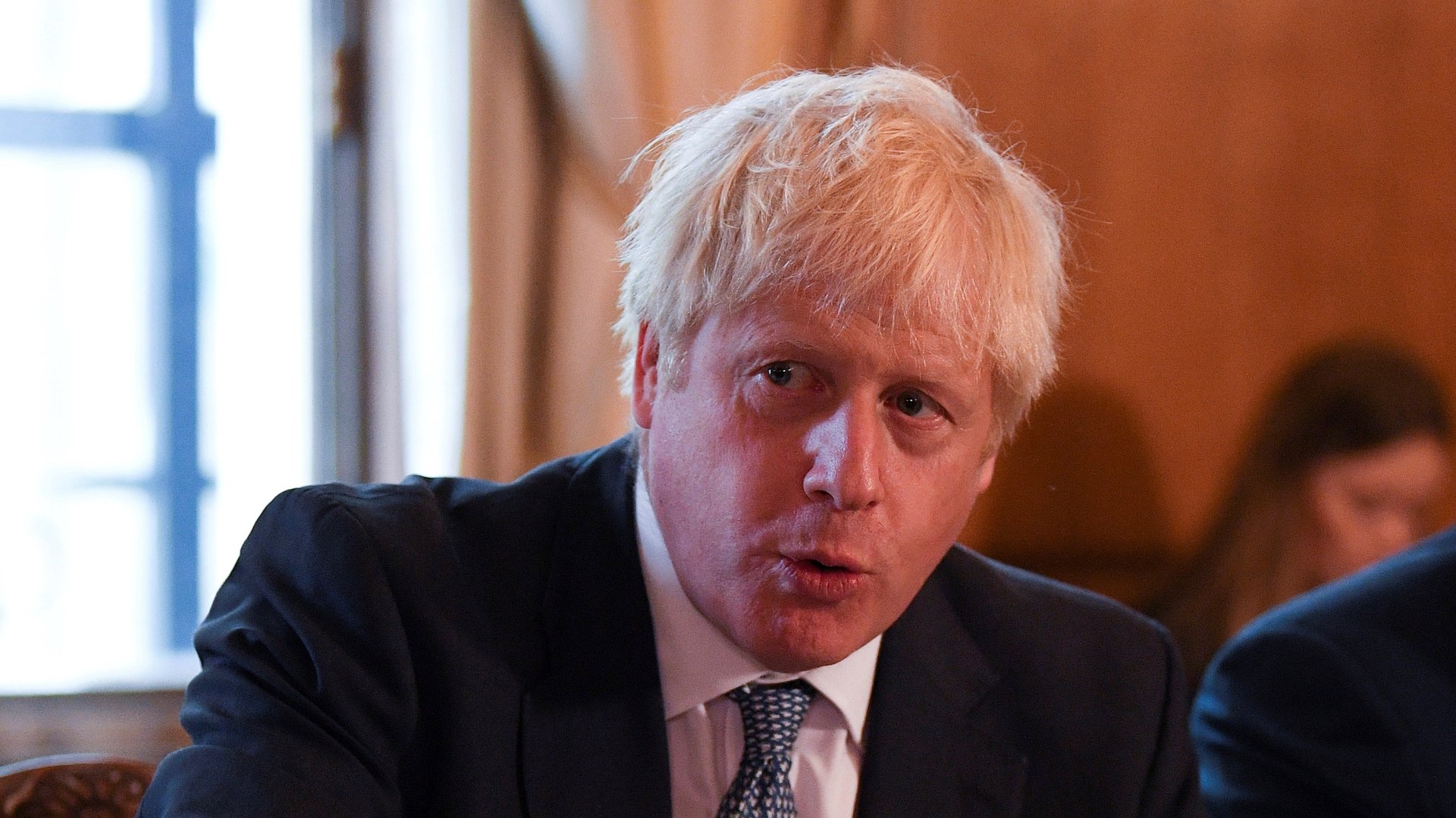Boris Johnson is more of a Europhile than he lets on
Given UK prime minister Boris Johnson’s stance on Brexit, you’d think a Brit so intent on leaving the European Union wouldn’t be much of a Francophile. But he is.


Given UK prime minister Boris Johnson’s stance on Brexit, you’d think a Brit so intent on leaving the European Union wouldn’t be much of a Francophile. But he is.
The language-learning app Babbel commissioned a study of five UK prime ministers and their linguistic skills, enlisting 100 experts to analyze just how well British leaders since 1997 have done when speaking in foreign tongues. Since 2001, every member of the British parliament has been entitled to learn a foreign language “or develop existing skills” as part of an initiative set up by the Foreign and Commonwealth Office.
“Where once a handshake and a photo opportunity may have been enough, British politicians are learning that language skills are becoming ever more important in this new global world,” says Sophie Harwood, project manager at Babbel. “While we are ranking these political figures for their German cadence, or their French flair, it’s worth saying that they should all be commended for using their language skills in a public setting.”
The analysts examined audio and video dating back to 1997 to determine the leaders’ foreign-language fluency. It’s notable that in all this time, they only managed to find enough data to score the ministers on their French, German, and Italian—not Spanish or Dutch or Greek or Portuguese, say. Included in the analysis were Johnson and his predecessors Theresa May, Tony Blair, David Cameron, and Gordon Brown.
Johnson did remarkably well. There was data available to assess his French, German, and Italian, more languages than the rest, a sign that he’s more inclined to test his linguistic skills in public than the others, for whom data was only sometimes available in French or German. In French, Johnson scored higher than any previous leader, which is also some indication that as a person he’s been much more interested in Europe than he’s been letting on as a politician.
In all five categories examined—grammar, pronunciation, accent, pacing, and confidence and enthusiasm—the Brexiteer scored either 9/10 or 10/10 points, for a final outcome of 47/50. This was the highest score in French for any of the prime ministers, and significantly more impressive than the score of 31/50 that May, who Johnson recently replaced, earned in the same language. If the two were taking a French test in a US school and getting graded, Johnson would have gotten an A, or 94%, while May would have received a D- with just 62%, thus just barely passing.
The Babbel team’s feedback on Johnson’s score was that “his accent and pronunciation are pretty good, and his grammar is on-point.” They suggested he do some grammatical review, however, asking, “Is he purposefully confusing tenses to appear charming? It’s difficult to tell with Boris.”
Former prime minister Blair got 46/50 in French, also the equivalent of an A, although his accent was assessed as less impressive than Johnson’s—he got 8/10 on the accent where Johnson scored 9/10. May, for her part, scored 3/10 on her accent but made up for it with enthusiasm, which earned her 10/10. And David Cameron scored a respectable 43 on the French assessment, the equivalent of a B or 86% (his accent scored a mere 6/10, however). There was no score in French for Brown.
Johnson was not as skilled in Italian or German, but he did use these two languages publicly. He was the only candidate with a score in Italian, earning 35/50, which is 70% or a C-. It’s not an impressive grade, but there’s no other Italian score to compare it to, so that is something.
Only three UK leaders tried their hand at speaking German in public: Johnson, May, and Brown. May scored the highest in this language, but no one was particularly good at it. May earned 33/50, or 66% (a D), while Johnson only scored 30/50, 60% (a barely passing D-). Meanwhile Brown, who spoke no French or Italian, scored only 27/50 in German, which amounts to 54% (an F, which is a failing grade).
Foreign-language skills obviously do not reveal a person’s political leanings. But they can be an indication of openness to other cultures, and English speakers in particular seem to have trouble with foreign tongues. In Johnson’s case, given his opposition to remaining in the European Union, the willingness to engage in a language other than his own shows that he’s been much more attuned to the nearby countries he now seeks to divorce from than his statements in English indicate. Certainly, his French teachers would be proud.